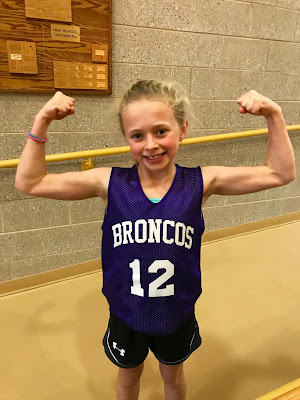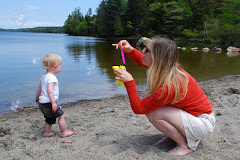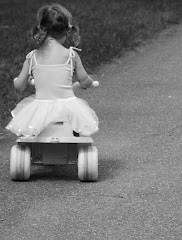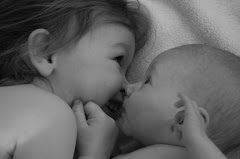If the news headlines of this fall have a common thread it is this: there is an alarming power imbalance between men and women in this country.
In September, I had the rare luxury of a day to myself. With my trusty, four-legged companion by my side, I drove the three hours to Western Maine to hike the second tallest peak in Maine, Old Speck Mountain. Old Speck is part of the Appalachian Trail (AT) and it had been years, and two babies, since I'd hiked it. I have a hearty reverence for the AT and, given the choice, I will always hike its rugged path over another, hoping to channel the grit and mettle of those bad-ass thru hikers.
So with a Ziploc of gorp for me and one full of treats for Piper, we hit the trail.
It was everything I wanted it to be: thick vibrant moss carpeting gnarled roots, ancient trees boasting their fall splendor, dappled sunlight, a mountain stream and 3.8 miles of grueling assent.

Near the summit, I come across a twenty-something guy sitting on a rock, panting and depleted, his damp hair and shirt proof of a recent mountain battle. I say hello, something I am genetically programmed to do, and comment on the intense humidity. He tells me he just climbed the backside of the mountain, considered one of the most difficult miles of the entire AT, a feat to add to the couple thousand miles he had already journeyed from North Carolina.
He is a thru hiker, a mere couple hundred miles from the northern terminus of the AT on Mt. Katahdin in Baxter State Park.
I congratulate him, offer him some of my extra food and water. His pack is small, not much bigger than mine. He is eating the last of his food, he says, and needs to resupply in town but has enough to get him there.

Piper and I go on our way, hanging out at the summit for a bit before beginning our descent. About twenty minutes in, I see the hiker behind me.
We get talking. I have a million questions about hiking the AT and he seems happy for some company. We chat and hike companionably for a while, maybe forty minutes. He is friendly and forthright, telling me about his girlfriend, the job he left for the hike, his family, his plans when he finishes.
Piper, a fantastic judge of character, is warm and wagging with him so all seems well.
He slows his pace and soon falls behind. Then my brain starts in: what if he isn't really a thru hiker? His pack seemed awfully small. What if he is a serial killer or rapist? He seems friendly and honest but isn't that a hallmark trait of a sociopath? What if he has come out in the woods today looking for a trusting female to prey upon?
I pick up my pace, my runaway fears propelling me faster down the mountain. I want to put distance between us. I un-Velcro the Mace from my pack and slip it in my pocket for easier access.
I hear the snap of twigs behind me, footfalls on the crunchy leaves. He has caught up to me.
My heart quickens and I consider the likelihood of Piper, a lab who is certain every person she meets is her new best friend, coming to my defense if I were threatened. Maybe she isn't such a great judge of character but a blind love-machine.
I don't want to be thinking about this in my sacred place, the woods. I resent it.
I weigh my options: fall back and let him get ahead, pick up my pace in hopes that my legs are fresher and he won't keep up. I have no cell signal, not that it would do any good to call anyone.
So I do the only thing that makes sense: I keep on guard and maintain our friendly chatter. I leave room for the possibility that he is a genuinely nice guy without losing the sight of the fact that he might not be.
It's a long way down. He tells me about his impending engagement, about wanting kids someday. At my prompting, he explains his small pack, his ultra-light approach to backpacking, the contents and specific weight of each item in his pack.
Seems believable. Or a well-rehearsed lie.
We come upon another hiker, resting on a rock. They clearly know each other, calling each other by their trail names. This seems like a good sign, I tell myself. Unless this is his partner in crime and I am now in double danger.
I tell him about my kids, about my wife, in part because that is how you maintain friendly conversation. And because that's what you're supposed to do in a hostage situation to humanize the targets.
He tells me a typical AT story, about a woman in some southern state who gave him a ride into town, offered her yard for camping, a hot meal and a shower. I want to believe it's true, more proof of the goodness of people, but doubt tells me he might be testing me, baiting me. Will I be as generous as she was?
Here's the kicker: I am that generous. Everything in me screams to extend assistance to someone in need, especially someone on an epic journey,
Finally, the earth beneath my feet flattens; we are near the trailhead. He is telling me about his dynamic grandmother who started a school for underprivileged kids, a woman so beloved by him, he cared for her as she died. Heartwarming... or total bullshit.
I know he needs to get into town and it isn't within walking distance. He needs a ride. I dread the moment when he asks, when I have to decide if he has proven himself worthy of my trust.
I think about my girls. Where do my obligations lie: to my children who need their mother to return safely or to a man I don't know and whose intentions I have spent the past three hours trying to divine?
He thanks me for the company, pets Piper and heads toward the road.
I hurry to my car, rush to lock the doors. As I change into dry clothes my conscience bullies me, smacks me around. Be bigger than fear, it says. Don't let the state of the world alter who you are and what you give.
Maybe if he is still waiting for a ride when I leave, I will give him one. I slide the Mace under my thigh where I can easily grab it and start my car.
Then another voice, more reasonable but more pleading: Your kids need you to come home. You don't owe him anything. You owe them everything.
I edge out of the lot. I look up and down the road, awash with relief. I don't have to turn my back on someone in need. He is gone.
As I drive away, Piper already asleep in the back, it hits me: he didn't ask me for a ride. He knew that would put me in an uncomfortable position. He is a good guy after all.
Or he is a serial killer and I wasn't a suitable target.
I am shaken the entire ride home.
And here is the point of my story: this is what it is like to be a woman in the world.
We have courageous women speaking up, telling the ugly truth about the sexual misconduct of powerful men in some of the most influential workplaces in America. They are doing so at enormous personal and professional risk to themselves, not for attention or vengeance, but because silence is no longer an option.
(I acknowledge that, unfortunately, there may be unfounded accusations, or outright lies, which destroy and maim the lives of the accused. But that does not change the arresting power imbalance between men and women in our society.)
If you don't get it, if you think these accusations are overblown or that women are exaggerating when they speak of fear - for their jobs, for their safety, for their lives- I ask: have you ever had your heart hammer in your chest when you walk alone to your car after dark? Do you hold your car key between your middle and index finger, protruding out just enough to strike as a weapon if needed? Do your ideas get dismissed based on your gender? Do you ever question if your clothing choices might make you unsafe? Do you wonder, in the middle of an martial arts-inspired exercise class if those kicks and punches would ever work if you needed to defend yourself for real?
For every woman daring to tell the truth about violation there are thousands who remain silent. For every act of abuse, every trespass, there is a permanent shift in the heart, body and psyche of the victim. It might only happen once, but it will reverberate forever.
I'm the mother of a thirteen-year-old. I talk to her often about her body, about her voice, about her choice. I tell her that she does not owe anyone her body, not ever. I tell her how to stand up, how to stop someone with strong words, how to run if necessary. I tell her about peer pressure and people bartering unwanted touch for the coveted commodity of adolescence: approval.
I wonder, do parents have this same conversation with their sons?
Of course not. That is not the world we live in.
But our boys need guidance too. I hope parents will help their sons understand the power bestowed on them simply because they were born male, how to use that privilege to stand up for the disempowered and disenfranchised, to never take what is not freely given, to be responsible for their desire and that no really does mean no.
In the past year, the dark underbelly of our nation has been unearthed, the poisonous soil tilled and roiled to the surface. Hatred, contempt and the ruthless wielding of power over women and a multitude of minorities has been exposed; it no longer lurks in the shadows in disguise, but stands ugly and tragic in the light of day. The only way I have found peace is to hope that we, as a nation, will hemorrhage this heinous malignancy like blood from a wound, ridding ourselves of a dangerous infection.
Our voices, our truths- both mens and women's, because this system harms both sides- are the medicine needed to heal us.
The other remedy is what we teach the children of today, how we shape the adults of tomorrow.
My ten-year-old is on a competitive basketball team this year. She's small and mighty and there is little, including her parents, that can impede her tenacious spirit. Her favorite parts of basketball are stealing the ball, sweaty armpits and winning.
Her coaches, two men, hold these players in such high regard as girls and as athletes, spurring them to be fierce, unrelenting and aggressive. All determination is rewarded, even if it needs cultivation, and power and moxie are the backbone of their team. I sit on the sidelines, unable to stop grinning as these girls are given license to dominate.
I'm all in favor of strong women teaching impressionable girls, providing a living, breathing role model of female skill and strength. But, given the depth of this disparity in power between genders, I also love to see men bolstering these qualities in young girls. It's a strong message, an essential bridge over the chasm, allowing us all to cross over.
I want to hug all the good men I know. I want to high-five the legions of brave, formidable, magnificent women I know. I don't want to feel afraid because I'm a woman. I don't want my girls to grow up feeling that men matter more than them. I want to raise courageous, spunky daughters empowered by their gender, not limited by it. I want boys to grow into solid men who support and respect their female equals.
Hats off to those men that get it. I adore and applaud you. Kudos to all those working to understand. The first step is to listen to other people's experiences, rather them discounting them simply because they differ from our own. It is far too easy to think our view of the world is the true one.
I will continue to seek solace in the woods and to live with an open heart. It is who I am. I will remember to account for my safety but I refuse to give in to fear. And when my girls tell me they wish to go off on some adventure, I will trust that the risk of going is less than the risk of living small and afraid. I will send them off with a kiss, slip some Mace in their pocket, activate the tracking app on their phone and continue to envision a world that has space for all of us.
Power has two faces. Time to ask ourselves which one we are wearing.
















